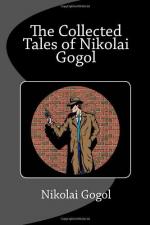|
This section contains 17,805 words (approx. 60 pages at 300 words per page) |

|
Dictionary of Literary Biography on Nikolai (Vasilyevich) Gogol
Nikolai Vasil'evich Gogol is the father of Russia's Golden Age of prose realism. Later nineteenth-century Russian authors wrote in the shadow of Gogol's thematics and sweeping aesthetic vision; twentieth-century modernists acknowledge Gogol as an inspiration. Gogol defined the contours of the Russian literary landscape with his early collections, Vechera na khutore bliz Dikan'ki (Evenings on a Farm near Dikanka, 1831-1832) and Mirgorod (1835). Playful and horrific, these folk-inspired tales of good and evil evolve into the elusive morality and fantastic realism of Gogol's Petersburg stories. Characters and themes from the latter provide the basis for some of Fyodor Dostoyevsky's great novels. Gogol's plays are social satires that revolutionized the very idea of the stage in Russian theater. Pokhozhdeniia Chichikova, ili Mertvye dushi (The Adventures of Chichikov, or Dead Souls, 1842), Gogol's epic poem in prose, is the point where discussions of Russian national identity often begin. With Mertvye dushi Gogol...
|
This section contains 17,805 words (approx. 60 pages at 300 words per page) |

|


